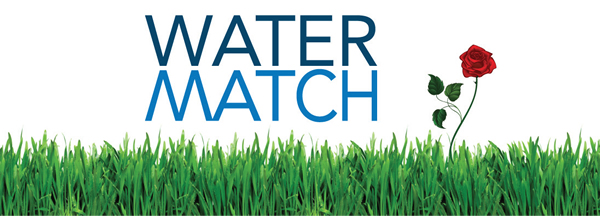By Skip Derra at ASU News
CH2M HILL’s WaterMatch, a grassroots, goodwill initiative that promotes the reuse of municipal effluent for industrial and agricultural use, is expanding through collaborations with companies and universities around the world. Arizona State University and Intel are among the targets for this expansion in the U.S.
CH2M HILL, a program management, construction management and design firm located in Denver, developed WaterMatch as a free website that uses social networking and geospatial mapping to connect water generators with water users. “We are expanding WaterMatch and the grassroots water reuse revolution to promote progress through partnerships and projects on the ground,” said Jan Dell, vice president at CH2M HILL. “We invite companies, municipalities and universities to join us in this effort.”

CH2M HILL launched WaterMatch in 2011. Recognizing the importance of water reuse and the low rates of implementation around the world, corporations and universities are partnering with WaterMatch to promote reuse and sustainable water management through a variety of actions. WaterMatch has more than 21,000 potential water reuse sources and is growing daily.
ASU and Intel are working with local municipalities in Arizona and the U.S. Southwest to populate the WaterMatch map and associated wastewater treatment plant profiles. They also are conducting research into the uses and benefits of WaterMatch.
“Sustainable water management is a key focus at Intel,” said Gary Niekerk, director of Corporate Citizenship at Intel. “We created the external collaboration with CH2M HILL‘s WaterMatch, ASU’s Global Institute of Sustainability and ASU’s Decision Center for a Desert City to increase water sustainability in our local community.” Niekerk added that Intel believes that technology can play an important role in addressing the world’s sustainability challenges.
The university program will leverage what is learned from successful pilot projects at Arizona State University and the University of California-San Diego.
“Our students are eager to engage on the critical issue of water sustainability in Arizona and work on a grassroots project,” said John Sabo, director of Research Development at ASU’s Global Institute of Sustainability. “It’s great to see the program our students helped to pilot expand globally.”
Also helping to populate the map and grow the user base are SGS, a global inspection, testing, verification and certification company in Poland; British Water in the United Kingdom; and ConocoPhillips, working in Indonesia.
To tap into the energy and creativity of students, and offer them real-world learning experiences that support local community and economic development, WaterMatch is collaborating on a global WaterMatch Makers university program with Net Impact, a global nonprofit that supports a new generation of leaders who work for a more sustainable world.

